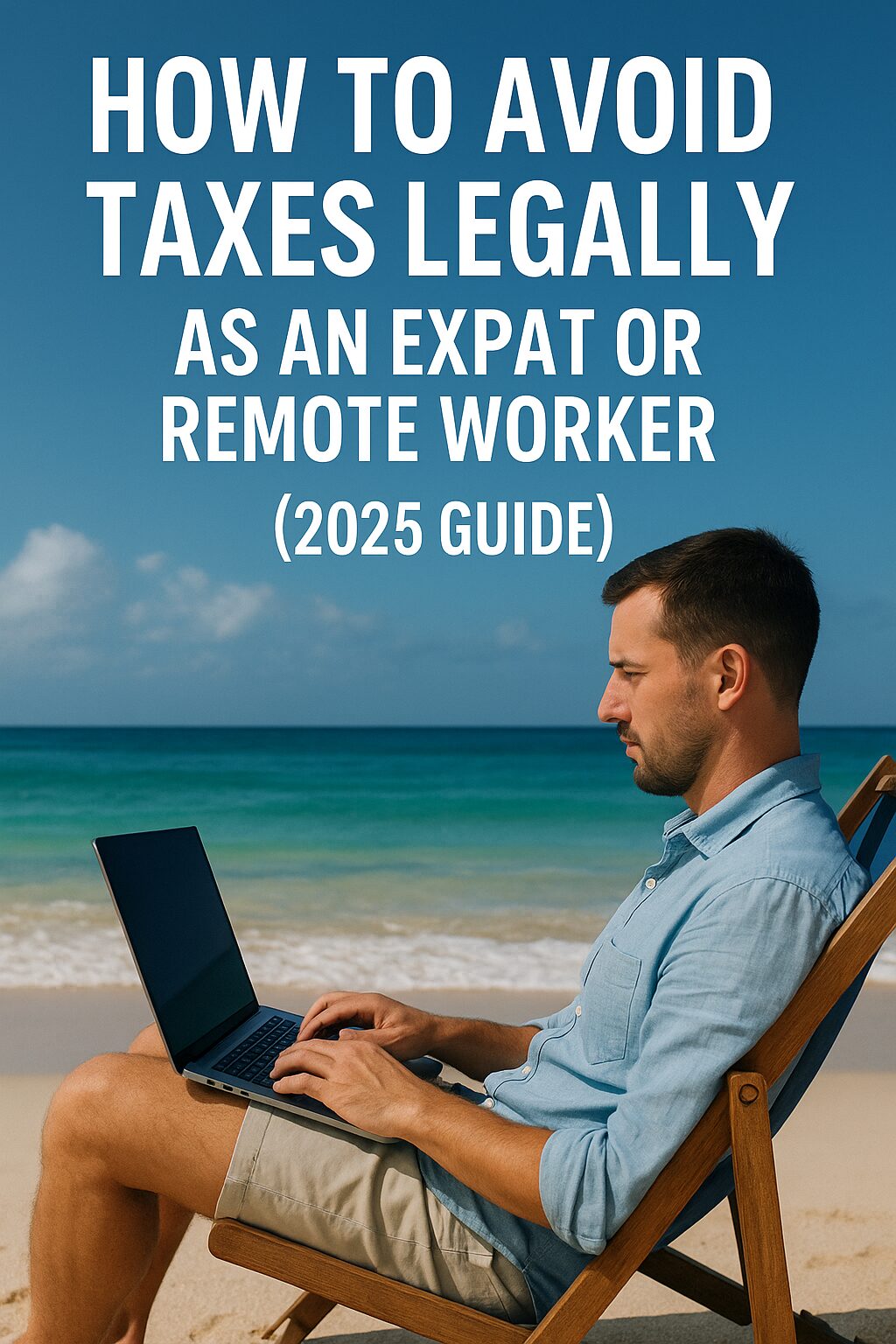Introduction
In 2025, more people than ever are living internationally while earning remotely. Whether you’re freelancing, working for a foreign employer, or running your own online business, taxes remain one of the most complex and frustrating parts of the journey. The good news? There are entirely legal, government-approved methods for minimizing or even eliminating your tax obligations—no shady loopholes or risky schemes required.
This guide walks you through proven strategies for legally avoiding taxes as an expat or remote worker, with examples, tools, and country recommendations.
Why Legal Tax Avoidance Matters
Avoiding taxes legally isn’t about cheating the system—it’s about understanding how the system actually works. Every country has its own tax laws, and many offer generous incentives to attract foreign income earners.
Key reasons to focus on legal tax strategies include:
- Avoiding double taxation on income earned abroad
- Optimizing your financial future by keeping more of what you earn
- Reducing administrative headaches through smart planning
- Protecting yourself from compliance penalties
Top Legal Methods to Reduce Taxes
1. Foreign Earned Income Exclusion (FEIE)
U.S. citizens can exclude up to $120,000 (2025 threshold) of foreign earned income by meeting either the Physical Presence Test or the Bona Fide Residence Test.
2. Double Taxation Agreements (DTAs)
Many countries have treaties that prevent you from being taxed twice. Check if your country has a DTA with your country of residence.
3. Establishing Tax Residency in a Friendly Country
Spending 183+ days in a low-tax country can often qualify you as a tax resident. Examples include:
- Georgia
- Panama
- Paraguay
- UAE
4. Incorporating Offshore
Creating a company in a tax-advantaged jurisdiction can separate business income from personal tax liabilities. (Make sure to comply with economic substance rules.)
Digital Nomad vs. Expat Tax Strategy
| Category | Digital Nomad | Expat |
|---|---|---|
| Tax residency | Often undefined | Established in one country |
| Best tactic | Move between tax-friendly zones | Use local tax laws + treaties |
| Risk level | Medium – depends on mobility | Lower – if rules are followed |
| Tax optimization | Through travel and short stays | Through planning and relocation |
Best Countries for Tax Optimization (2025)
1. Portugal
- Non-Habitual Resident (NHR) program
- 10-year tax benefits
- European quality of life
2. Georgia
- 0% tax on foreign income
- Remote registration for residency
3. UAE (Dubai)
- No personal income tax
- Remote Work Visa available
4. Thailand
- New Long-Term Residency visa for digital nomads and investors
- Tax-friendly under remittance-based system
5. Panama
- Territorial tax system
- Easy residency through Friendly Nations Visa
Avoid These Common Tax Mistakes
- Failing to establish any tax residency
- Not reporting foreign bank accounts (FATCA, CRS)
- Using shell companies with no real operations
- Not understanding visa vs. tax residency difference
- Ignoring IRS or home country filing requirements
Real-World Case Studies
Case A: U.S. Freelancer Using FEIE
Lives in Southeast Asia for 330+ days/year
→ Excludes $120K income from U.S. taxation using FEIE
→ Uses Wise and Payoneer for low-fee transfers
Case B: German Remote Worker Relocating to Portugal
→ NHR program saves 25–30% in taxes
→ Registers as freelancer under Portuguese tax authority
Case C: Canadian eCommerce Seller in Georgia
→ Gains 0% tax on foreign income
→ Registers personal business and local bank account
Conclusion: Build a Sustainable Global Tax Strategy
The legal methods covered in this guide aren’t shortcuts—they’re smart strategies that help you comply with the law while keeping more of your hard-earned money.
From choosing the right residency to leveraging treaties and exclusions, there are many ways to legally reduce or eliminate your tax liability as an expat or remote worker.
In 2025, the smartest earners aren’t those making the most—they’re the ones keeping the most.
